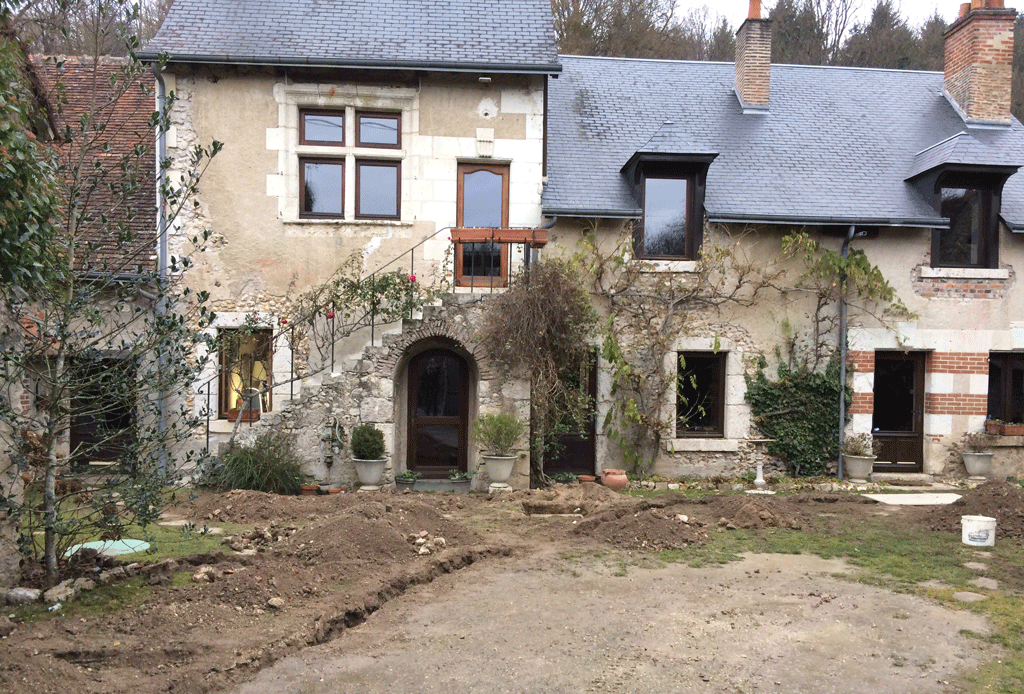Chantier is an interesting word. The photo below is a perfect illustration of its three main meanings. Un chantier is a place where some sort of construction work is going on. It is also the construction work itself while the third meaning is related to the mess produced by the construction work.

So what would we call a chantier in English? If it applies strictly to where the construction work is being carried out, then we can talk about a worksite or building site. That’s the most straightforward.
Il y a deux grues sur le chantier – There are two cranes on the building site.
If you’re talking about the place where you were doing a job, you’d probably say “on the job”.
J’ai oublié mes outils sur le chantier – I forgot my tools on the job.
When you’re talking about the construction work itself, you can no longer call it a worksite.
Ils ont démarré le chantier il y a deux semaines – They started construction two weeks ago.
By extension, the expression en chantier means that work of some sort is going on:
La maison est en chantier depuis trois mois – We’ve been fixing up the house / having the house fixed up / having alterations done on the house for three months.
J’en ai marre du chantier – I’m sick of alterations.
Elle a deux livres en chantier – She’s working on two books at the moment.
Quand est-ce que tu vas te mettre en chantier – When are you going to get going?
Chantier meaning a mess is not just restricted to construction work.
Ta chambre est un vrai chantier – Your room is a complete mess.
There are other specific uses of chantier such as chantier naval which is a shipyard and chantier d’exploitation forestière which is a lumber site.
There is also chantier interdit au public which literally means worksite prohibited to the public but in English we would probably just say “No entry” or “No admittance”.
Although roadworks are usually just travaux, when they are finished – when we would say “road clear” or “end of roadworks” -the French signs usually say “Fin de chantier”.
Chantier used in a wider sense means the start of a major project. A famous example is Chantiers de jeunesse, an organisation created in 1940 by the Vichy government to occupy newly drafted recruits. For more, very interesting reading on the subject, click here.
The origin of the word is also interesting and very complicated. It comes from the Latin cantherius meaning gelded horse or a poor work horse. By metaphor, it came to mean “support”, particularly (1261) the pieces of wood on which barrels were placed and by 1611, it also meant the wedge supporting a piece to be crafted, which gave the expression mentioned above mettre en chantier meaning to start work.
By the second half of the 17th century, chantier had come to mean a place where building materials were stocked and then an open-air construction or demolition site. The shipyard meaning comes from the fact that chantier was used to designate the wooden support used when boat-building.
I hope this explanation is comprehensible. My sources are a bit confusing and use lots of linguistics terminology.
Now, over to you – what other uses of chantier do you know?



